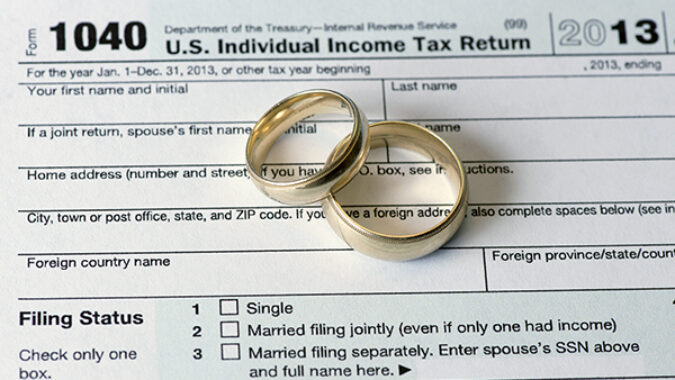The nonpartisan Tax Foundation recently took a deep dive into state tax brackets nationwide and found that New Jersey is one of 15 states that impose a “marriage penalty” on couples filing jointly by taxing them at a higher rate than if they had filed as two single individuals with the same combined income.
“This non-neutral tax treatment is particularly harmful to owners of pass-through businesses, whose business income is taxed under the individual income tax system,” said the Tax Foundation’s Janelle Cammenga. “Subsequently, under a marriage penalty, married business owners are subject to higher effective tax rates on their business income than they would be otherwise.”
Under a graduated-rate income tax system, a taxpayer’s marginal income is subject to progressively higher tax rates. A marriage penalty exists when a state’s income brackets for married taxpayers filing jointly are less than double the bracket widths that apply to single filers.
Fifteen states have a marriage penalty built into their income tax bracket structure: California, Georgia, Maryland, Minnesota, New Jersey, New Mexico, New York, North Dakota, Ohio, Oklahoma, Rhode Island, South Carolina, Vermont, Virginia and Wisconsin.
Seven additional states fail to double bracket widths but offset their marriage penalty in the bracket structure by allowing married taxpayers to file separately on the same return, avoiding loss of credits and exemptions. These states are Arkansas, Delaware, Iowa, Mississippi, Missouri, Montana, and West Virginia, as well as the District of Columbia.
Ten states have a graduated-rate income tax but double their brackets to avoid a marriage penalty: Alabama, Arizona, Connecticut, Hawaii, Idaho, Kansas, Louisiana, Maine, Nebraska, and Oregon.
The ability to file separately on the same return is important in states that do not double bracket widths, and so is the ability to do so even if the couple files jointly for federal purposes.
“While married couples have the option of filing separately—though some states only allow this if it is also done on their federal forms—this normally creates a disadvantage," Cammenga said. “It either disallows or reduces the value of deductions and credits available to the family jointly, which is also a form of marriage penalty. Filing separately on the same return eliminates this problem but is slightly more complex than doubling tax brackets for joint filers so that there is no penalty for filing jointly.”




